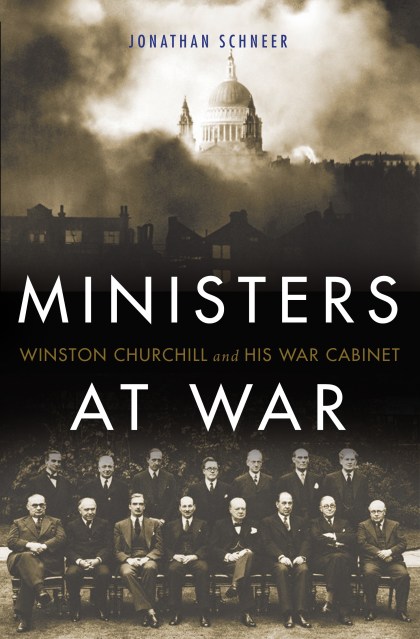By clicking “Accept,” you agree to the use of cookies and similar technologies on your device as set forth in our Cookie Policy and our Privacy Policy. Please note that certain cookies are essential for this website to function properly and do not require user consent to be deployed.
Ministers at War
Winston Churchill and His War Cabinet
Contributors
Formats and Prices
- On Sale
- Apr 14, 2015
- Page Count
- 352 pages
- Publisher
- Basic Books
- ISBN-13
- 9780465040582
Price
$20.99Price
$26.99 CADFormat
Format:
ebook $20.99 $26.99 CADBuy from Other Retailers:
As prize-winning historian Jonathan Schneer reveals in Ministers at War, Churchill depended on a team of powerful ministers to manage the war effort as he rallied a beleaguered nation. Selecting men from across the political spectrum — from fellow Conservative Anthony Eden to leader of the opposing socialist Labor Party Clement Attlee — Churchill assembled a War Cabinet that balanced competing interests and bolstered support for his national coalition government. The group possessed a potent blend of talent, ambition, and egotism. Led and encouraged by Churchill, the ministers largely set aside their differences, at least at first. As the war progressed, discord began to grow. It reached a peak in 1945: with victory seemingly assured, Churchill was forced by his Minsters at War to dissolve the Government and call a General Election, which, in a shocking upset, he lost to his rival Attlee.
Authoritatively recasting our understanding of British high politics during World War II, Schneer shows that Churchill managed the war effort by managing his team of supremely able yet contentious cabinet members. The outcome of the war lay not only in Churchill’s individual brilliance but also in his skill as an executive, and in the collective ability of men who muted their personal interests to save the world from barbarism.
Newsletter Signup
By clicking ‘Sign Up,’ I acknowledge that I have read and agree to Hachette Book Group’s Privacy Policy and Terms of Use






